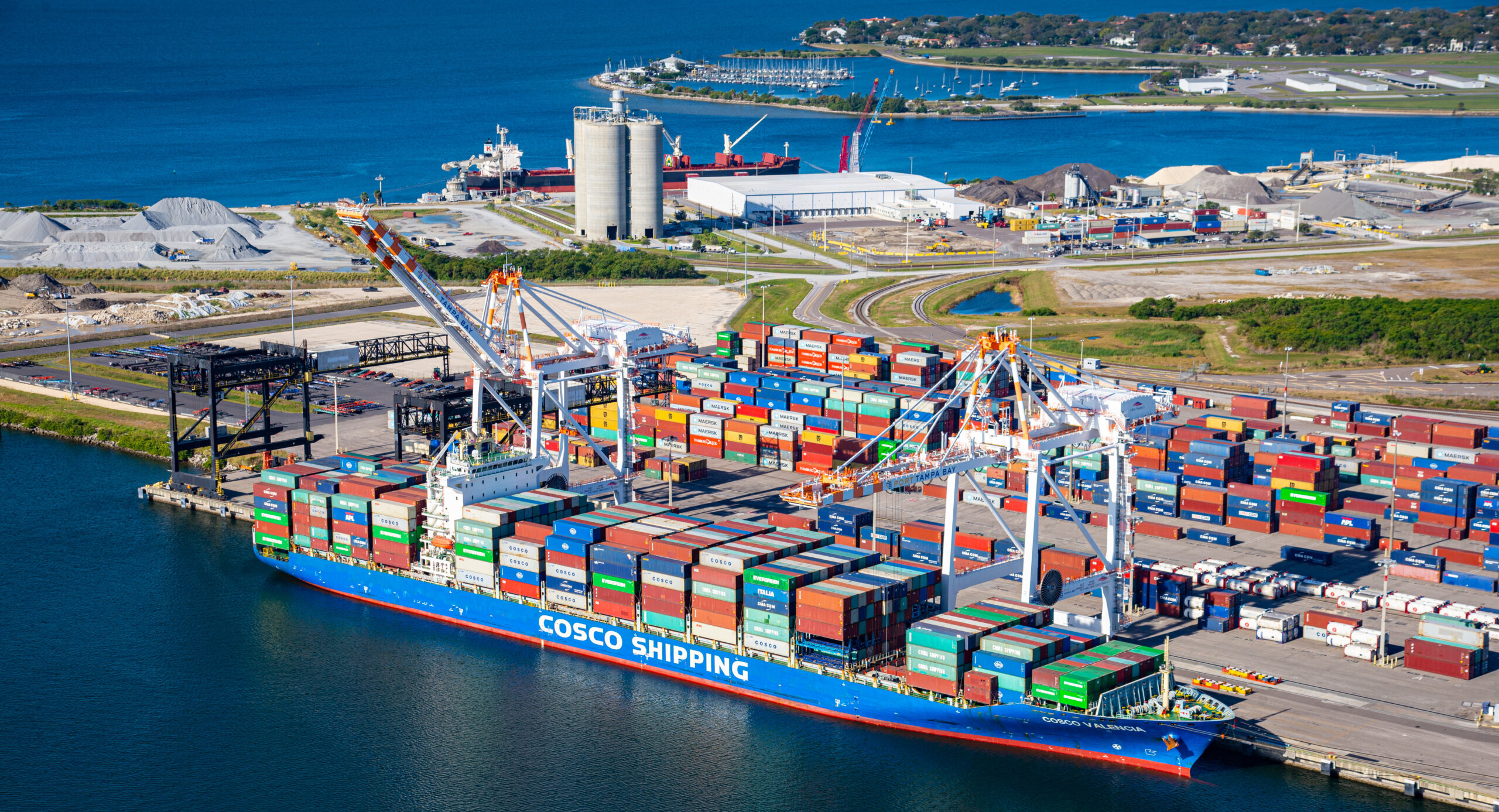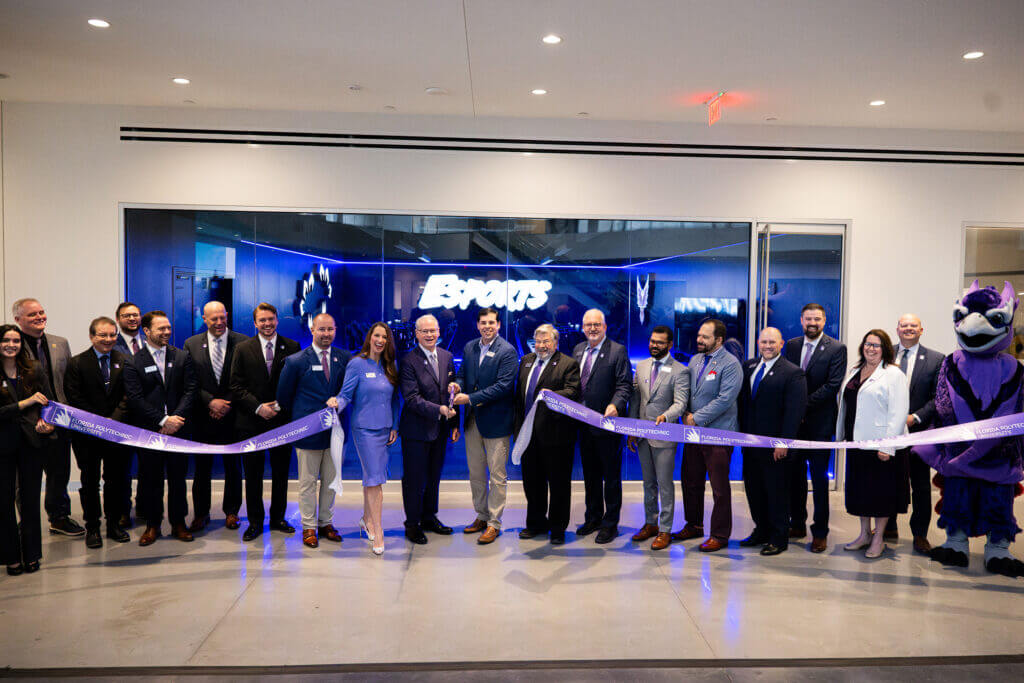Foreign Trade Zones are Hot Spots as the Global Economy Celebrates World Trade Day
World Trade Day on May 22 highlights the global society we have become. It is a time where the Tampa Bay/ I-4 Corridor (TB/I4) Foreign Trade Zone takes center stage. It stands as a way businesses in Polk and Hillsborough counties can save money when importing and exporting products.
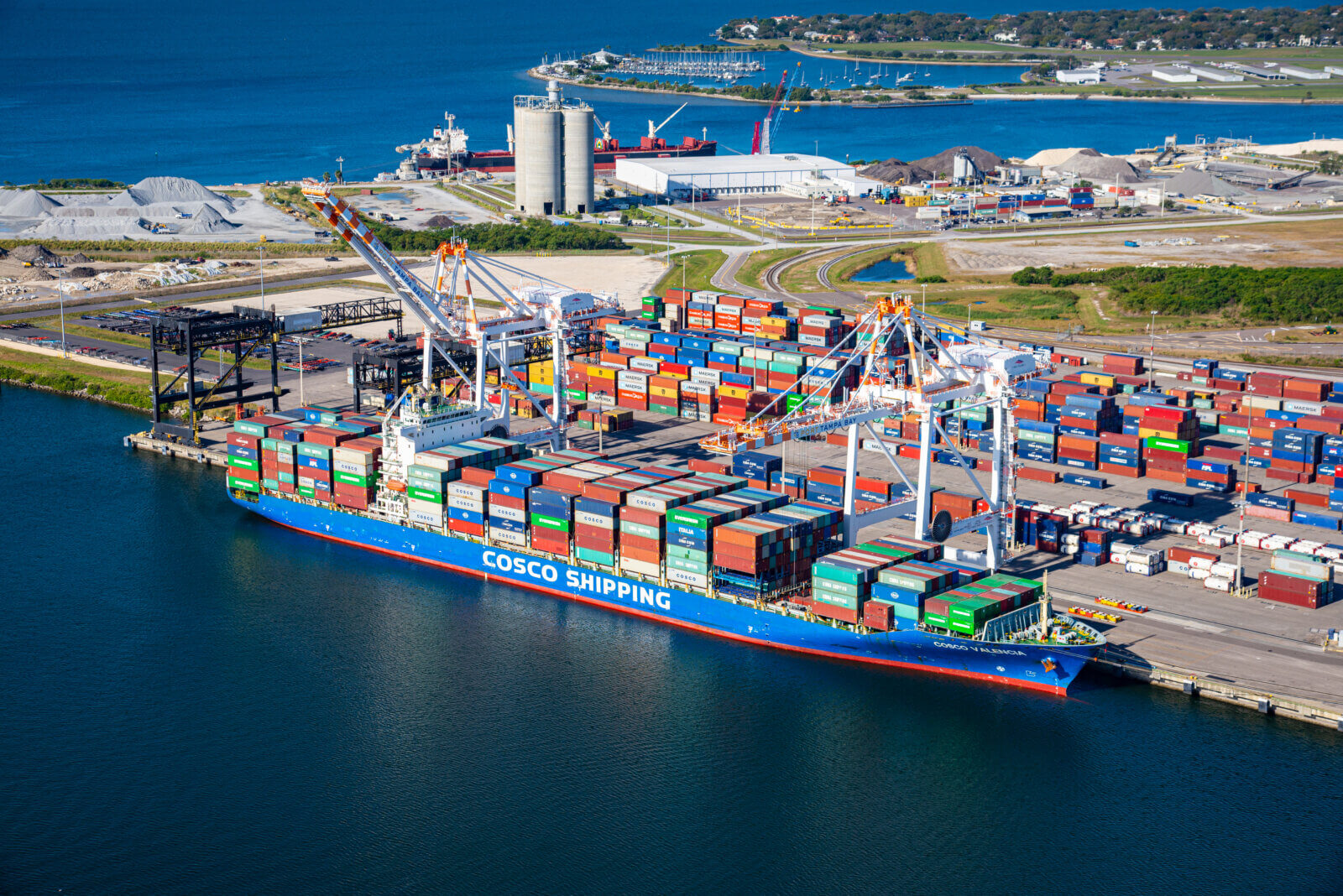
In 1989, Tampa sponsored the formation of the Tampa Foreign-Trade Zone Board, a non-profit corporation that administers FTZ 79. It is also known as the Tampa Bay/I-4 Corridor FTZ Project or TB/I4 FTZ. It is one of more than 200 FTZs in the U.S. that helps businesses be competitive in the global economy. They optimize a company’s supply chain and reducing the landed costs on imports and exported finished products.
On May 22, the U.S. will host the World Trade Day conference in Denver. The conference is a way for industry leaders and professionals to get together to discuss trends, opportunities and the global marketplace.
Tampa Bay/ I-4 Corridor (TB/I4) FTZ Project
Closer to home, the TB/I4 FTZ helps businesses located in the Tampa Bay and along the I-4 Corridor region thrive in global marketplace. Companies involved in global trade and importing/exporting materials can benefit from using a foreign trade zone.
“The concept of the FTZ is that it’s a tool that can be used to reduce global trading costs for a company,” said Javier Marin, Director of Economic Opportunity in Tampa.
Torrey Chambliss, administrator of the TB/I4 FTZ Project and Director of FTZ and Cargo Business Development for Port Tampa Bay, summed up why companies should use FTZs in one word: opportunity.
“From the standpoint of procurement and sales, every company should have the opportunity to search for a good they want to sell, regardless of its originating location. For instance, if you want to sell limes, it’s easier to find a lime producer in Central America.
You then find the quantity the end-user wants,” Chambliss said. On the other hand, blueberries are grown is large quantities domestically, so companies can harvest blueberries domestically and sell them outside the country.
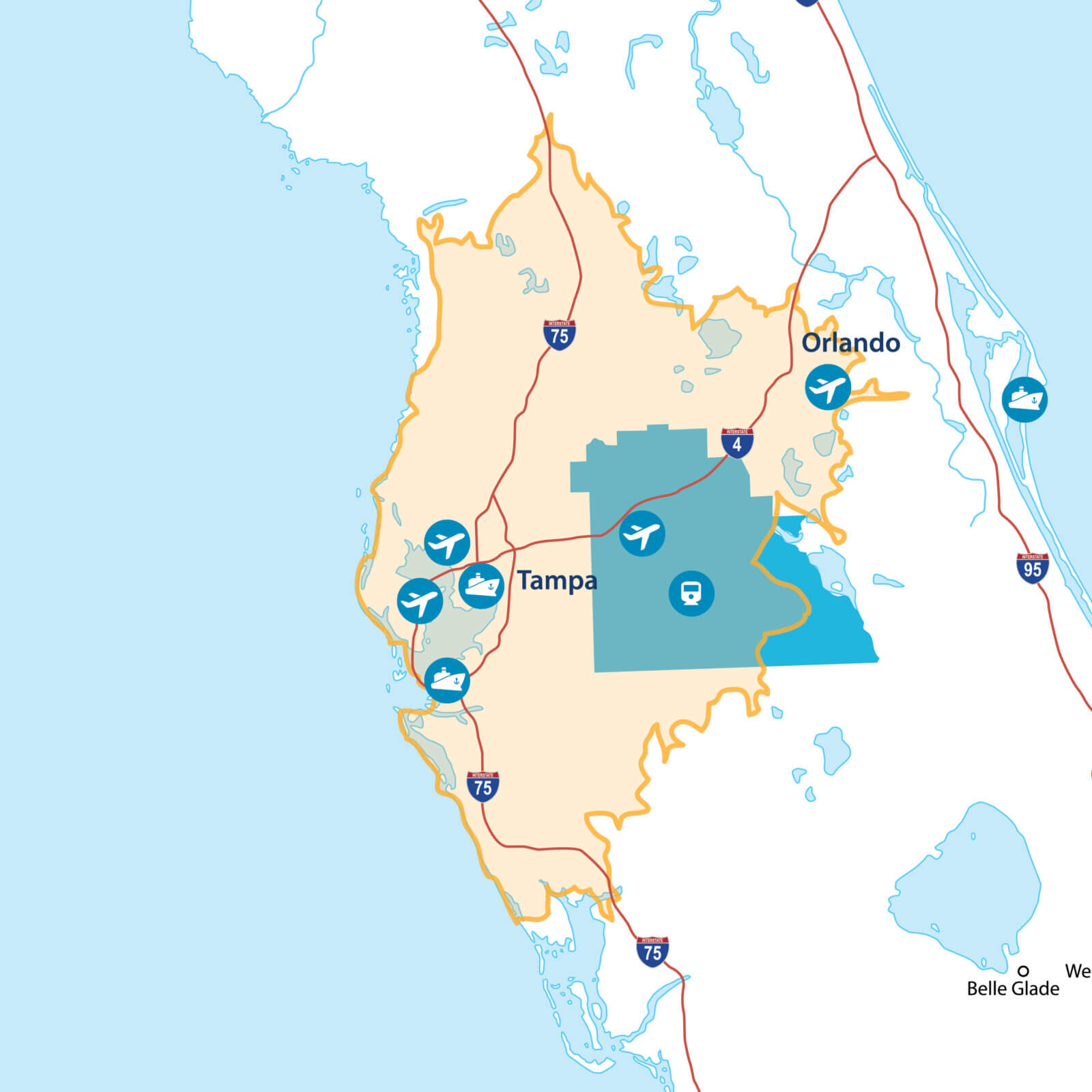
He also said there are potentially more buyers in flat numbers outside the U.S. than inside. “Export sales bring new money into the economic engine here. That helps everyone involved.
Chambliss said there are more than 50 businesses that use the TB/I4 FTZ in some way. From FTZ operators, users of the FTZ services, or providing a transportation service that keeps the cargo flowing, it’s a wide variety.
Applying to be Part of TB/I4 FTZ
Sean Malott, President & CEO of the Central Florida Development Council, said FTZs are a federal program companies have to apply for. “If a company is bringing in something from outside the country, a raw material, putting it into their process and sending it back out again as a new product, they may significantly eliminate some of the tariffs. FTZ are a way for a company to defer, reduce or potentially eliminate some of the tariffs they may have if they are importing and exporting goods.”
That, Malott and Marin said, often creates local jobs, adding to the local economy.
“They import Part A, manufacture Part B locally. Then, put the two together to create a new product, then send that product to international destinations. That creates jobs here and eliminates tariffs that are due because the product never comes into the U.S.,” Malott said.
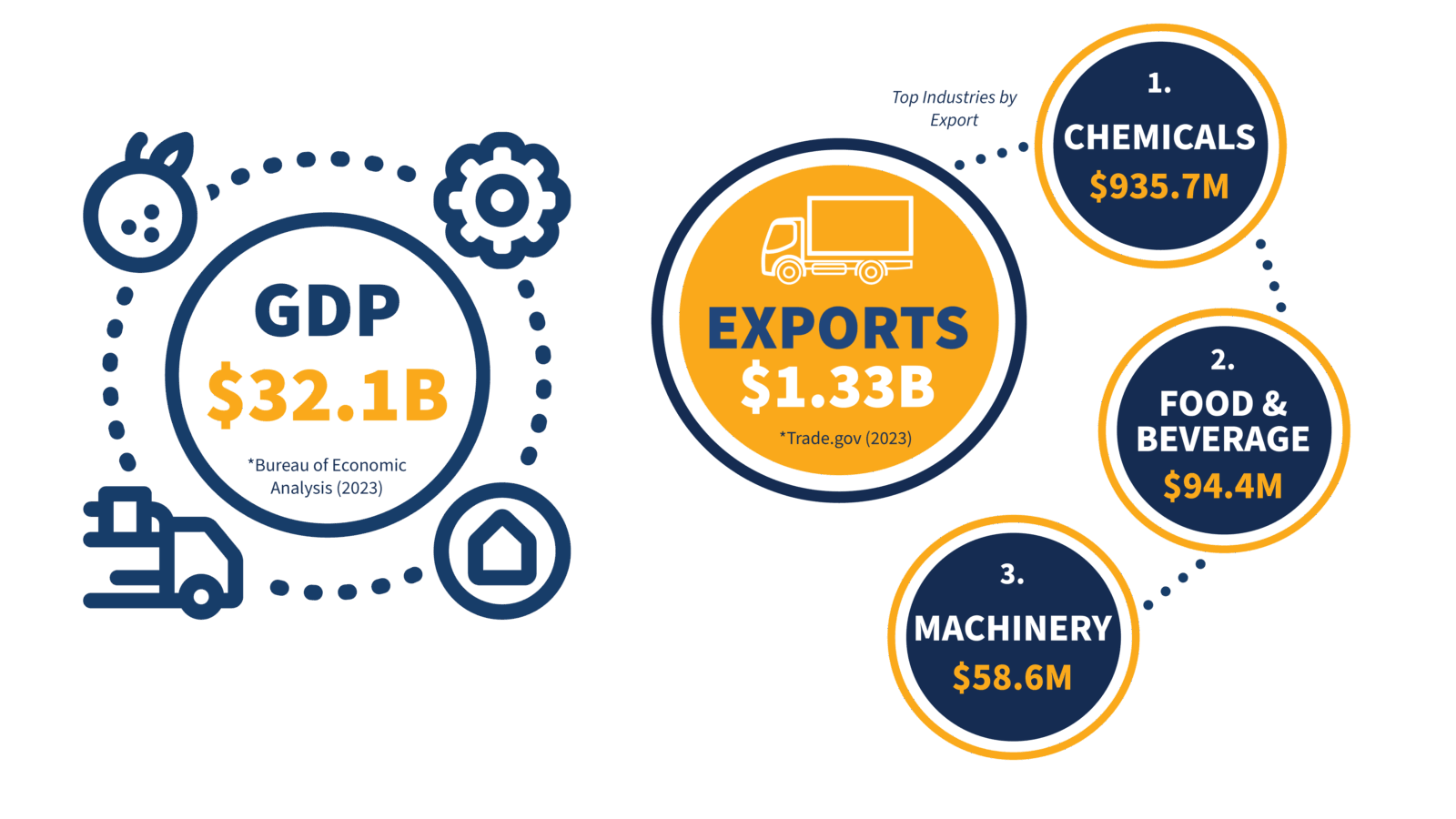
When a company wants to use the FTZ designation, it must do so within their operating footprint, he said. “They have to share where it is and the protocol around how the FTZ is set up. So, if you have a 100,000-square-foot facility, you could designate and secure a portion as an FTZ site so only product coming and going is placed there. It requires tracking, administrative functions and paperwork. When tariffs are lower, it may not be worth the time or effort. When they’re going up, depending on where you’re at and where product is going, it might make sense to go through the process.”
Polk Companies
Two Polk County companies that use the FTZ designation are Ritchie Brothers Auctioneers in Davenport and Givaudan Flavors Corp. in Lakeland.
“Ritchie Brothers has a lot of equipment that comes from other countries for auction,” he said. “If it’s coming from Mexico, it could go into an FTZ site – a specific location Ritchie Brothers has designated — be sold and then go to Brazil. It’s never really entering the U.S.”
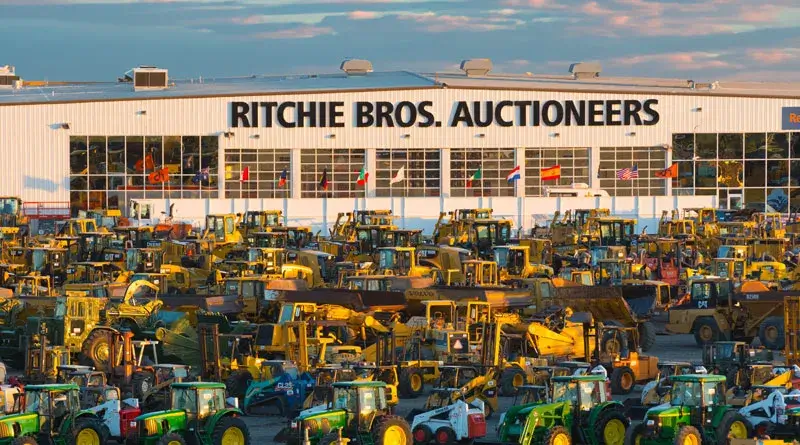

Givaudan, a global flavors and essence company, imports a lot of raw materials, according to Malott. They then send the final products around the globe as part of its distribution system.
The Benefits
Being in a foreign-trade zone has three major benefits, Marin said. Those are:
- “Better cash flow by paying tariffs only on products that are used or sold immediately. This allows the company to store product quantities and delaying the payment of tariffs on stored goods.
- “Easier and cheaper to import and redistribute products globally through re-exporting of products.
- “Savings when reducing tariffs as a result of conversion of components into a finished product.”
At times, existing low tariffs on a product may not benefit those using a foreign-trade zone, he said.
Consumers can also benefit from companies using a foreign-trade zone because those businesses tend to pass along savings, Marin said.

The Future
Chambliss said there is an ongoing mandate to market the TB/I4 FTZ Project to regional companies to help with their supply chain strategies, whether importing or exporting. “We look at what a company is trying to do from an international supply chain perspective and how can we use the FTZ to complement that strategy. If it can complement the company end goal it’s a win-win for everyone involved.”
He said the port experiences numerous trade disruptions every year. It may be a water shortage in the Panama Canal, or endangered species in the shipping channels in the Gulf of Mexico, or shipping lines filing for bankruptcy or consolidating. So, dealing with the changing tariffs is nothing new.
“Itʼs a different type of trade disruption that make the company figure out how to use the FTZ within the supply chain to navigate the world as deftly as they can to reduce costs,” he said.
Marin added: “In spite of the confusion regarding the tariffs, there are plenty of opportunities for the FTZ to expand services to additional businesses. Any business thatʼs importing or exporting should know about the existence of the TB/I4 FTZ Project and definitely use it. Depending on how the new tariffs affect those business users, there may be additional opportunities for more companies to take advantage of the FTZ benefits.”
He summed it up: “We see FTZs as opportunities to create more jobs.”
